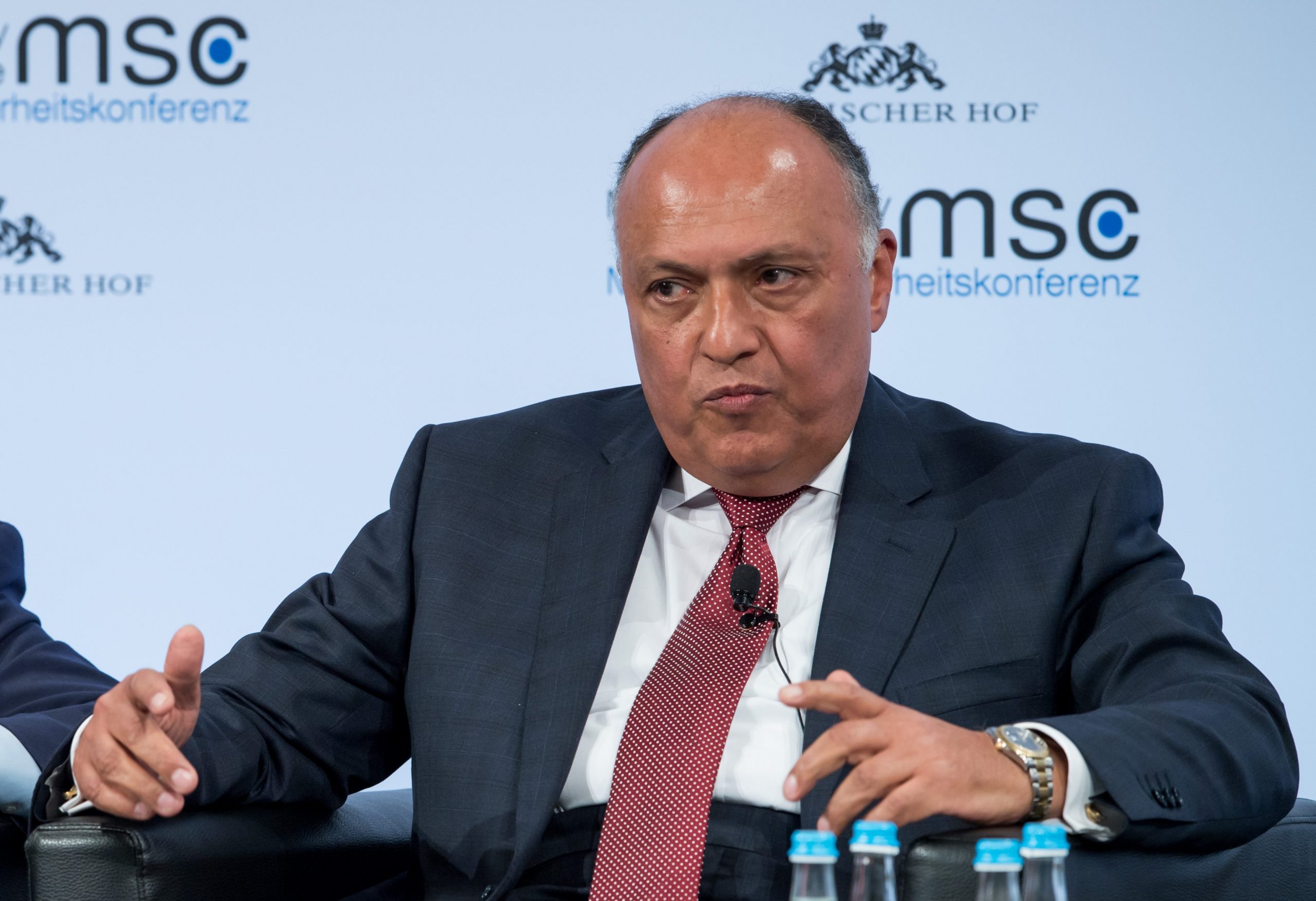The two countries restored their relations in January after a three-year feud, yet the path to full reconciliation remains shaky.
Egypt is still monitoring Qatar’s actions in fulfilling its commitment to the Al Ula Declaration, Egyptian Minister of Foreign Affairs Sameh Shoukry said, according to a CNN Arabic report on Sunday.
However, there are currently “positive messages” from Qatar, signalling more hope towards reconciliation following the January 5 signing in the Saudi kingdom, the Egyptian official said, noting the Gulf state has been exhibiting a more optimistic approach.
Read also: Qatar, Egypt on track to restoring ‘warm relations’ after three-year split
“It is too early to judge Qatar’s commitment to the statement, and we will continue with the follow-up committee to assess its performance, and I look forward to the implementation of the accord from its end,” he said.
The comments come as several Egypt-Qatar meetings were held in Kuwait, Qatar and Egypt.
Last week, a delegation from Doha visited Cairo to engage in direct dialogue to discuss the future path of reconciliation after signing the Al-Ula Declaration, Al-Ahram reported.
According to the Egyptian paper, Director of the Legal Affairs Department at the Qatari Ministry of Foreign Affairs Sheikh Mohammed bin Hamad bin Saud Al Thani was among the delegation in Cairo, which included several other diplomats and legal figures.
‘Cautious optimism’
While the contents of the meetings have yet to be disclosed, the two parties appear to be hesitant.
“The relations between Egypt and Qatar were always problematic for many reasons and mistrust has always been present in the relationship between the two countries,” Dr. Majed Al-Ansari, Assistant Professor of Political Sociology at Qatar University, told Doha News.
Mistrust remains a key player in the bilateral relations between Qatar and Egypt, given their political positions in the past, including the Cairo coup against the first democratically-elected President Mohamed Morsi, as well as other ongoing issues.
Read also: Qatar opens $1 billion St. Regis Hotel in Cairo
“I don’t think there’s a lot of trust building initiatives that need to be taken, the relationship will remain steadfast from that perspective of the Arab narrative actions. I think one of the main issues between the two countries is the Gaza and Libya issues,” he said.
In a previous February statement, Shoukry said authorities in Cairo were also monitoring the Qatar-based media network Al Jazeera to keep a record of what is being published.
But despite the hesitance and pace, the journey to reconcile is ongoing.
“I think there’s a lot of cautious optimism towards the Egyptian-Qatari track. However, I do not think it’s going any faster or slower than the track with Riyadh,” added Dr. Al-Ansari.
“I think in the coming weeks we will see more officials exchanging visits between Qatar and Egypt and I think Qatar has made it very clear that it’s willing to participate in Egypt-based activities, especially with reference to its presidency in the Arab League,” said Dr. Al-Ansari.
In the most high-profile visit since the two countries signed the accord, Qatar’s Foreign Minister Sheikh Mohammed bin Abdulrahman Al-Thani arrived in Egypt for the 155th session of the regular session of the Arab League Council on March 3rd.
The foreign minister also met with his Egyptian counterpart Shoukry in a meeting that the Qatari official said “was characterised by a positive spirit and optimism for the return of relations to normal”.
Pending expectations
Immediately after the signing, Qatar Diar Real Estate Company officially opened its prestigious and wholly-owned St. Regis Hotel in the Egyptian capital. The $1 billion investment into St Regis is considered one of the company’s most prominent projects in Egypt, offering an ultimate expression of contemporary luxury in the country’s capital.
“It was very clear from day one that the main issue, from Egypt’s point of view, is Qatar’s position towards the regime in Egypt and the military coup that took place. However, economically speaking, there’s a lot of expectation that Qatar would pay into the Egyptian economy,” said Dr. Al-Ansari.
In 2017, Egypt, Saudi Arabia, the UAE and Bahrain imposed an illegal land, air and sea blockade on Qatar over allegations that it sponsors terrorism. Qatar has consistently and vehemently denied those accusations.
The crisis ended on January 5th after signing the historic Al-Ula Accord in Saudi Arabia.
Since then, Qatar and Egypt announced the restoration of diplomatic ties though no updates have been announced to suggest the official re-opening of the embassy in the Gulf state.
Follow Doha News on Twitter, Instagram, Facebook and Youtube







